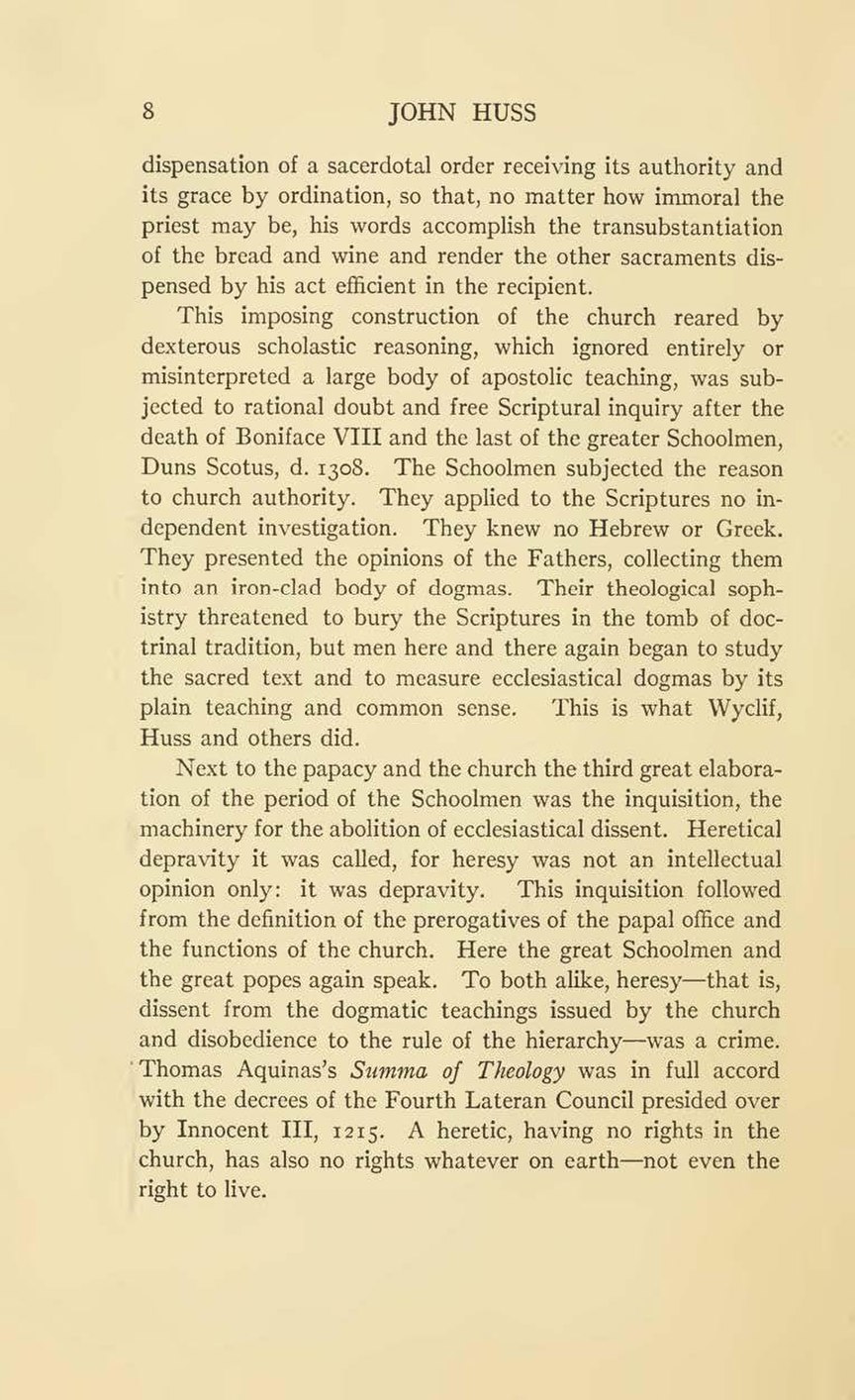dispensation of a sacerdotal order receiving its authority and its grace by ordination, so that, no matter how immoral the priest may be, his words accomplish the transubstantiation of the bread and wine and render the other sacraments dispensed by his act efficient in the recipient.
This imposing construction of the church reared by dexterous scholastic reasoning, which ignored entirely or misinterpreted a large body of apostolic teaching, was subjected to rational doubt and free Scriptural inquiry after the death of Boniface VIII and the last of the greater Schoolmen, Duns Scotus, d. 1308. The Schoolmen subjected the reason to church authority. They applied to the Scriptures no independent investigation. They knew no Hebrew or Greek. They presented the opinions of the Fathers, collecting them into an iron-clad body of dogmas. Their theological sophistry threatened to bury the Scriptures in the tomb of doctrinal tradition, but men here and there again began to study the sacred text and to measure ecclesiastical dogmas by its plain teaching and common sense. This is what Wyclif, Huss and others did.
Next to the papacy and the church the third great elaboration of the period of the Schoolmen was the inquisition, the machinery for the abolition of ecclesiastical dissent. Heretical depravity it was called, for heresy was not an intellectual opinion only; it was depravity. This inquisition followed from the definition of the prerogatives of the papal office and the functions of the church. Here the great Schoolmen and the great popes again speak. To both alike, heresy—that is, dissent from the dogmatic teachings issued by the church and disobedience to the rule of the hierarchy—was a crime. Thomas Aquinas’s Summa of Theology was in full accord with the decrees of the Fourth Lateran Council presided over by Innocent III, 1215. A heretic, having no rights in the church, has also no rights whatever on earth—not even the right to live.
